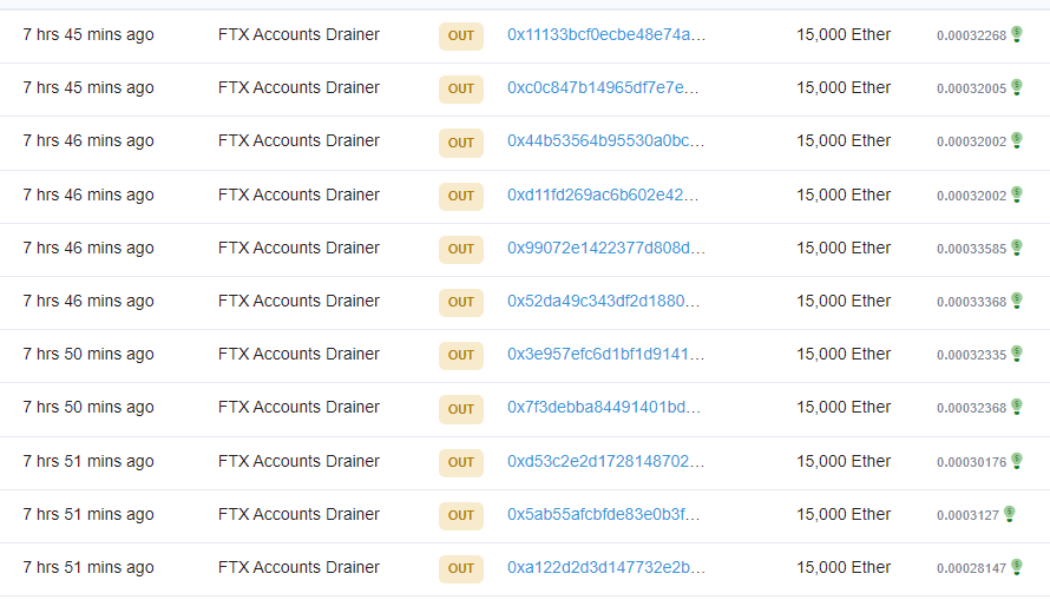Wallet
BitKeep exploiter used phishing sites to lure in users: Report
The Bitkeep exploit that occurred on Dec. 26 used phishing sites to fool users into downloading fake wallets, according to a report by blockchain analytics provider OKLink. The report stated that the attacker set up several fake Bitkeep websites which contained an APK file that looked like version 7.2.9 of the Bitkeep wallet. When users “updated” their wallets by downloading the malicious file, their private keys or seed words were stolen and sent to the attacker. 【12-26 #BitKeep Hack Event Summary】1/n According to OKLink data, the bitkeep theft involved 4 chains BSC, ETH, TRX, Polygon, OKLink included 50 hacker addresses and total Txns volume reached $31M. — OKLink (@OKLink) December 26, 2022 The report did not say how the malicious file stole the users’ keys in an unencrypted form. Howev...
LastPass attacker stole password vault data, showing Web2’s limitations
Password management service LastPass was hacked in August 2022, and the attacker stole users’ encrypted passwords, according to a Dec. 23 statement from the company. This means that the attacker may be able to crack some website passwords of LastPass users through brute force guessing. Notice of Recent Security Incident – The LastPass Blog#lastpasshack #hack #lastpass #infosec https://t.co/sQALfnpOTy — Thomas Zickell (@thomaszickell) December 23, 2022 LastPass first disclosed the breach in August 2022 but at that time, it appeared that the attacker had only obtained source code and technical information, not any customer data. However, the company has investigated and discovered that the attacker used this technical information to attack another employee’s device, which was then used...
On the move: FTX hacker splits nearly $200M in ETH across 12 wallets
The hacker behind the theft of more than $447 million of crypto from the crypto exchange FTX has been again spotted moving their ill-gotten funds. According to Etherscan data, between 4:11 to 4:17 pm UTC on November 21, the attacker moved a total of 180,000 Ether (ETH) across 12 newly created wallets — each receiving 15,000 ETH. The total amount moved totaled $199.3 million at current prices. Recent transactions from wallet labeled “FTX Accounts Drainer” — Source: Etherscan At the time of publication, the ETH has not moved from any of the 12 wallets. Some in the crypto community suggest the attacker may be planning to subdivide it into smaller and smaller amounts in order to confuse investigators, a process known as “peel chaining,” or they may be planning to use a mixing...
Trust Wallet launches browser extension, integrates with Binance Pay
Following the collapse of FTX and the bank run on crypto exchanges in general, self-custody Trust Wallet is gaining momentum. In one week, the company launched the long-anticipated browser extension and collaborated with Binance, whose users can now transfer their funds directly to a Trust Wallet account. On Nov. 14, Trust Wallet launched its browser extension, now available in Google Chrome and Opera browsers. The extension lets users store, send and receive crypto across all EVM chains and Solana. A network auto-detect function provides users with a seamless dApp experience without the need to manually add networks. The extension also includes multi-wallet support, NFT support, fiat on-ramp providers, and non-EVM blockchain integrations, as well as hardware wallet support. On Nov. ...
FTX hacker is now the 35th largest holder of ETH
The hacker that exploited the now-bankrupt FTX exchange last week made a tidy fortune that has propelled them to Ether (ETH) whale status. Just a day after the embattled FTX exchange filed for Chapter 11 bankruptcy, its wallets were drained for more than $663 million in various crypto assets, according to blockchain intelligence company Elliptic. Elliptic suspected $477 million of this was stolen, with a large chunk of those tokens being then converted into ETH, while $186 million worth of more than a hundred different tokens was believed to be moved into secure storage by FTX itself. As reported by Cointelegraph on Nov. 15, the attacker was still draining wallets four days later in what analysts called “on-chain spoofing.” According to blockchain security firm Beosin, the attacker has con...
Visa’s trademark applications suggest more involvement in crypto space
Major credit card company Visa may be planning to explore digital wallet services based on two recent trademark applications. According to records submitted to the United States Patent and Trademark Office on Oct. 22, the Visa International Service Association filed two applications for its character mark to be used in software “to view, access, store, monitor, manage, trade, send, receive, transmit, and exchange” crypto assets and nonfungible tokens, or NFTs. The filings also suggested the credit card company may be exploring a move into the metaverse, with its namesake used in “virtual environments in which users can interact for recreational, leisure or entertainment purposes.” VISA has filed 2 trademark applications claiming plans for: ▶️ Managing Digital, Virtual, ...
VC Roundup: Web3 dev, EVM sharding and crypto banking headline blockchain funding deals
Web3 dominance within crypto funding rounds has been well documented by Cointelegraph Research. In addition to the Web3 mega funds announced recently, venture capital has also been making smaller, more targeted investments in the sector. In this week’s Venture Capital (VC) Roundup, we chronicle the latest Web3 funding initiatives and draw attention to a sharding platform, nonfungible token (NFT) marketplace, crypto banking solution and co-ownership infrastructure provider. Related: Blockchain games and metaverse projects raised $1.3B in Q3: DappRadar Gamers, athletes and content creators back WWVentures WWVentures, a boutique crypto venture firm, has raised $15 million for its Web3 fund — putting the company on track to invest in metaverse, decentralized finance and blockchain gaming...
Profanity tool vulnerability drains $3.3M despite 1Inch warning
Decentralized exchange aggregator 1inch Network issued a warning to crypto investors after identifying a vulnerability in Profanity, an Ethereum (ETH) vanity address generating tool. Despite the proactive warning, apparently, hackers were able to make away with $3.3 million worth of cryptocurrencies. On Sept. 15, 1Inch revealed the lack of safety in using Profanity as it used a random 32-bit vector to seed 256-bit private keys. Further investigations pointed out the ambiguity in the creation of vanity addresses, suggesting that Profanity wallets were secretly hacked. The warning came in the form of a tweet, as shown below. RUN, YOU FOOLS ⚠️ Spoiler: Your money is NOT SAFU if your wallet address was generated with the Profanity tool. Transfer all of your assets to a different ...
Linux to launch Foundation to support digital wallet development
The Linux Foundation, a global nonprofit organization that enables innovation within the blockchain ecosystem through access to open source technology, has announced plans to launch the OpenWallet Foundation (OWF). The OWF is a collaborative effort between companies in the technology and public sector, as well as stakeholders within the blockchain ecosystem, to develop open-source software to support the interoperability of digital wallets; software designed to send, receive, store and monitor digital assets. According to a press release issued on Sept. 13, the primary goal of the OWF is to build a multi-purpose open source engine that anyone with the technical understanding can use to build safe, secure, and privacy-protected interoperable wallets. The foundation also said it seeks ...
Can the government track Bitcoin?
Apart from data analysis done alone or in cooperation with private companies, authorities may request information from centralized exchanges. Due to regulation, centralized exchanges may also be obligated to share such information. However, not all cryptocurrency exchanges collaborate with authorities. A centralized exchange is a cryptocurrency exchange that is run by a single entity, such as Coinbase. To become a licensed operator in a certain country or territory, centralized exchanges need to comply with regulations. For instance, to decrease cryptocurrency anonymity and the illicit use of cryptocurrencies, most centralized exchanges have incorporated Know Your Customer (KYC) checks. KYC is meant to verify customers’ identities alongside helping authorities to analyze activity...





















